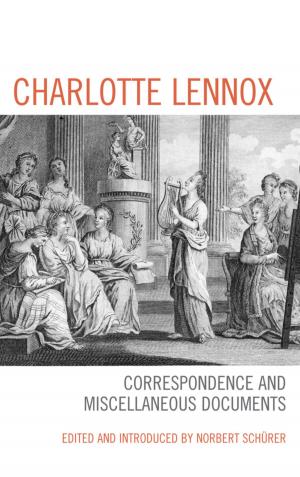Descendants of Waverley
Romancing History in Contemporary Historical Fiction
Fiction & Literature, Literary Theory & Criticism, British| Author: | Martha F. Bowden | ISBN: | 9781611487831 |
| Publisher: | Bucknell University Press | Publication: | August 11, 2016 |
| Imprint: | Bucknell University Press | Language: | English |
| Author: | Martha F. Bowden |
| ISBN: | 9781611487831 |
| Publisher: | Bucknell University Press |
| Publication: | August 11, 2016 |
| Imprint: | Bucknell University Press |
| Language: | English |
Descendants of Waverley examines contemporary novelists’ combination of historical authority and narrative art to create authentic and accessible depictions of the past. This technique, the “romance of history,” challenges conventional theories that the novel as a genre erased the romance. Individual chapters establish the critical framework, analyze the strategies that authors use to romance history, and demonstrate the subgenres that exist in current historical fiction. While the author does not consider Walter Scott to be the inventor of historical fiction, she demonstrates the ways in which contemporary fiction’s techniques reflect the form of the genre that Scott both developed and theorized in the Waverley novels (1814–1832). In writing his “historical romances,” Scott drew on the forms of the fictions that preceded his work, especially Gothic fiction, and was influenced by the fluid definitions of “romance” that permeated the theorizing of the novel and its development in the eighteenth century, where fiction was described as evolving from and replacing romances and referred to as “romances” themselves. She begins by tracing this history and moves on to discuss contemporary fiction, both as technique, in the uses of intertextuality, and in as form, in the increasing hybridity of contemporary fiction. This hybridity is reflected in such forms as the historical detective novel, the embedded narrative, and the biographical novel; the pedagogical elements inherent in the historical novel before Scott’s oeuvre continue into the present. The book ends with the recent phenomenon of historical fantasy; in this subgenre, the traits of more conventional historical fiction, such as intertextuality and the tension between the familiar and strange, combine with a playful form of fantasy that releases revenants among the Luddites and wizards into the Battle of Waterloo.
John Frow’s theory of the slipperiness of genre is a critical component for explicating the most recent metamorphoses of historical fiction. The critical framework also develops from recent and eighteenth-century histories of the novel, twentieth- and twenty-first-century theories of Scott’s influence, and contemporary writers’ own reflections on what they do when they write historical novels.
Descendants of Waverley examines contemporary novelists’ combination of historical authority and narrative art to create authentic and accessible depictions of the past. This technique, the “romance of history,” challenges conventional theories that the novel as a genre erased the romance. Individual chapters establish the critical framework, analyze the strategies that authors use to romance history, and demonstrate the subgenres that exist in current historical fiction. While the author does not consider Walter Scott to be the inventor of historical fiction, she demonstrates the ways in which contemporary fiction’s techniques reflect the form of the genre that Scott both developed and theorized in the Waverley novels (1814–1832). In writing his “historical romances,” Scott drew on the forms of the fictions that preceded his work, especially Gothic fiction, and was influenced by the fluid definitions of “romance” that permeated the theorizing of the novel and its development in the eighteenth century, where fiction was described as evolving from and replacing romances and referred to as “romances” themselves. She begins by tracing this history and moves on to discuss contemporary fiction, both as technique, in the uses of intertextuality, and in as form, in the increasing hybridity of contemporary fiction. This hybridity is reflected in such forms as the historical detective novel, the embedded narrative, and the biographical novel; the pedagogical elements inherent in the historical novel before Scott’s oeuvre continue into the present. The book ends with the recent phenomenon of historical fantasy; in this subgenre, the traits of more conventional historical fiction, such as intertextuality and the tension between the familiar and strange, combine with a playful form of fantasy that releases revenants among the Luddites and wizards into the Battle of Waterloo.
John Frow’s theory of the slipperiness of genre is a critical component for explicating the most recent metamorphoses of historical fiction. The critical framework also develops from recent and eighteenth-century histories of the novel, twentieth- and twenty-first-century theories of Scott’s influence, and contemporary writers’ own reflections on what they do when they write historical novels.















